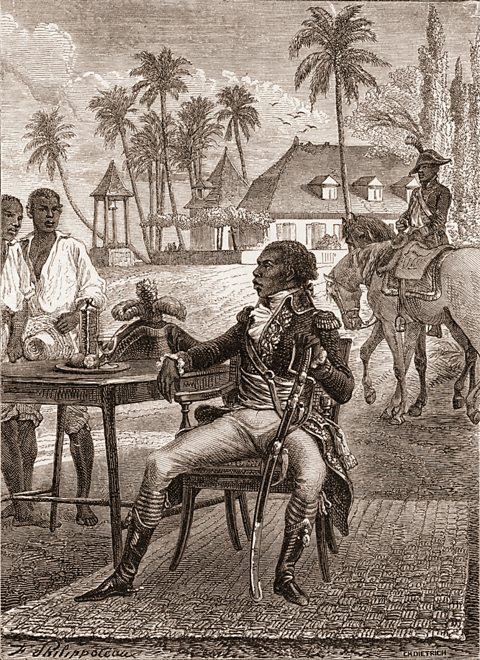Abolition

Toussaint l'Ouverture
At the end of the 18th century, public opinion began to turn against the slave trade.
- Some African rulers refused to sell enslaved people to the traders. Occasionally African villages attacked British slave ships and set the captives free.
- Sometimes enslaved people mutinied on board ships. The most famous case was the Amistad in 1839, where enslaved African people took control of the slave ship. Put on trial in the United States, the enslaved people won their freedom.
- There were many rebellions by enslaved people. The most famous leader was Toussaint l'Ouverture, who led a successful revolution to liberate the West Indies territory of Saint Domingue from French control in 1791.
- In Jamaica, runaway enslaved people formed 'Maroon' communities that fought against the British soldiers.
- In Britain, enslaved people, like James Somerset (or Somersett), frequently ran away from their masters. When he was recaptured, he and his friends contested his case in the courts.
In 1787, the Committee for the Abolition of the Slave Trade was set up. William Wilberforce represented the committee in Parliament.
- The campaigners boycotted sugar, wrote letters and presented petitions.
- Thomas Clarkson went on a speaking tour, showing his audiences the chains and irons used by slavers to keep their captives restrained, and also models of a slave ship.
- Other campaigners published leaflets describing conditions on the Middle Passage, and giving details of atrocities such as the Zong incident (1781). The captain of the slave ship Zong had thrown 133 enslaved people overboard so that he could claim insurance money.
- British Africans such as Olaudah Equiano formed the 'Sons of Africa' and campaigned against the slave trade.
There is some evidence that the slave trade was becoming less profitable â the price of buying enslaved people in Africa was rising, reaching ÂŁ25 in 1800, but the price for selling in the Americas had not risen as quickly and was only ÂŁ35 in 1800.
It is a matter of contention amongst historians as to which of these factors most contributed to the eventual abolition of the slave trade:
- Was resistance from enslaved people themselves significant enough to stop such a lucrative business?
- Was it the significance of key figures at home?
- Or was it the fact that it was becoming less profitable and this convinced slave traders to stop trading and the government to introduce laws banning it?